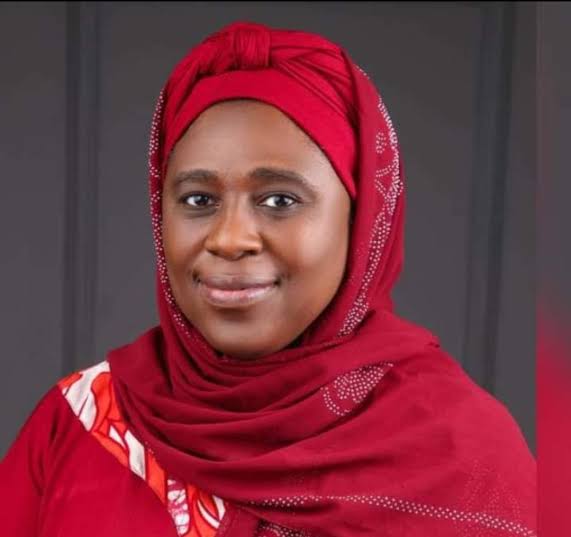News Investigators/ The Federal Government has unveiled a comprehensive plan to transform neurological healthcare in Nigeria.
The government also pledged new policies, investments and collaborations that will shape the nation’s brain and spine health response over the next decade.
The Special Adviser to the President on Health, Salma Ibrahim Anas, made this known on Tuesday at the inaugural Africa Neurological Health Summit 2025 in Abuja.
The News Agency of Nigeria (NAN) reports that the theme of the summit was “Policy and Advocacy in Neurological Healthcare: Bridging the Gap Towards Achieving WHO-IGAP Goals 2022–2031”.
It brought together leading neurologists, researchers, policymakers and patient advocates from across the continent.
Mrs Anas, who was represented by her Technical Adviser, Dr Ahmed Yakasai, outlined a five-pillar strategy in alignment with President Bola Ahmed Tinubu’s Renewed Hope Health Agenda.
She said that neurological disorders ranging, from epilepsy and stroke to traumatic spinal injuries, pose a significant challenge to Nigeria’s health and economic systems, affecting millions of lives.
“This summit must not be a talk shop. We must use it to accelerate policy implementation that brings real solutions to patients and families living with neurological conditions,” she said.
She unveiled five critical areas that would drive the Federal Government’s new neurological health agenda.
According to her, the government will establish a National Neurological Health Framework by introducing standardised care protocols and outcome indicators to improve care across all levels of the health system.
She said that it would also invest in Workforce and Infrastructure Development through targeted training, equitable deployment of specialists, and equipment upgrades to bridge the care gap from tertiary to primary facilities.
“Health Financing Expansion will be prioritised, with a specialised neurology benefit package being finalised under the National Health Insurance Scheme (NHIS), aimed at reducing out-of-pocket expenses.
“The government will promote Tele-Neurology and Digital Health Tools by deploying new platforms to enhance diagnosis, continuous monitoring and remote consultations, especially in underserved regions.
“Brain Health Equity will be advanced through advocacy and partnerships with civil society organisations to reduce stigma, foster social inclusion and empower patients across the country,” she sai.
Mrs Anas said that as part of its commitment, three new neurological centres had been commissioned in Kano, Port Harcourt and Maiduguri.
“These centres are equipped to manage conditions such as epilepsy and stroke, and are supported by university teaching hospitals to ensure a steady pipeline of trained neurologists,” she said.
The special adviser also issued a strong call for cross-sector collaboration.
She urged state governments to invest in neuro-care services at the sub-national level to ensure equitable access.
She called on health insurance providers to prioritise neurological conditions in benefit packages to reduce financial burden.
Mrs Anas appealed to civil society and the media to shift the narrative from stigma to hope and raise awareness.
She further encouraged global partners to support Nigeria’s efforts by funding research, technology and capacity-building initiatives that align with the government’s political commitment.
“This is the dawn of a truly intentional and inclusive approach to brain and spine health in Nigeria,” she said.
She called for measurable actions over the next ten years in line with the World Health Organisation’s Intersectoral Global Action Plan (WHO-IGAP) on epilepsy and neurological disorders.
Mya Ngon, Team Lead for Communicable and Non-Communicable Diseases at WHO Nigeria Office, reaffirmed the organisation’s commitment to supporting Nigeria in scaling up interventions for the prevention, management and rehabilitation of neurological disorders.
Mrs Ngon stressed the importance of sustained partnerships to consolidate progress across the continent.
“At WHO, will like to recommit ourselves to working with the Federal Ministry of Health and all key stakeholders to scale up interventions.
“This is essential to ensure that the growing number of people living with neurological conditions can access the quality care, treatment and rehabilitation they need,” she said.
She described the summit as a unique opportunity to foster collaboration and reach consensus on evidence-based recommendations that can improve health outcomes in Africa.
Mrs Ngon assured participants that WHO remained fully committed to supporting Nigeria’s brain and spine health initiatives.
She expressed optimism that the summit would yield actionable solutions and stronger intersectoral coordination.
NAN reports that event concluded with a unified call for concrete, time-bound commitments to reposition neurological healthcare as a national and continental priority.
NAN

